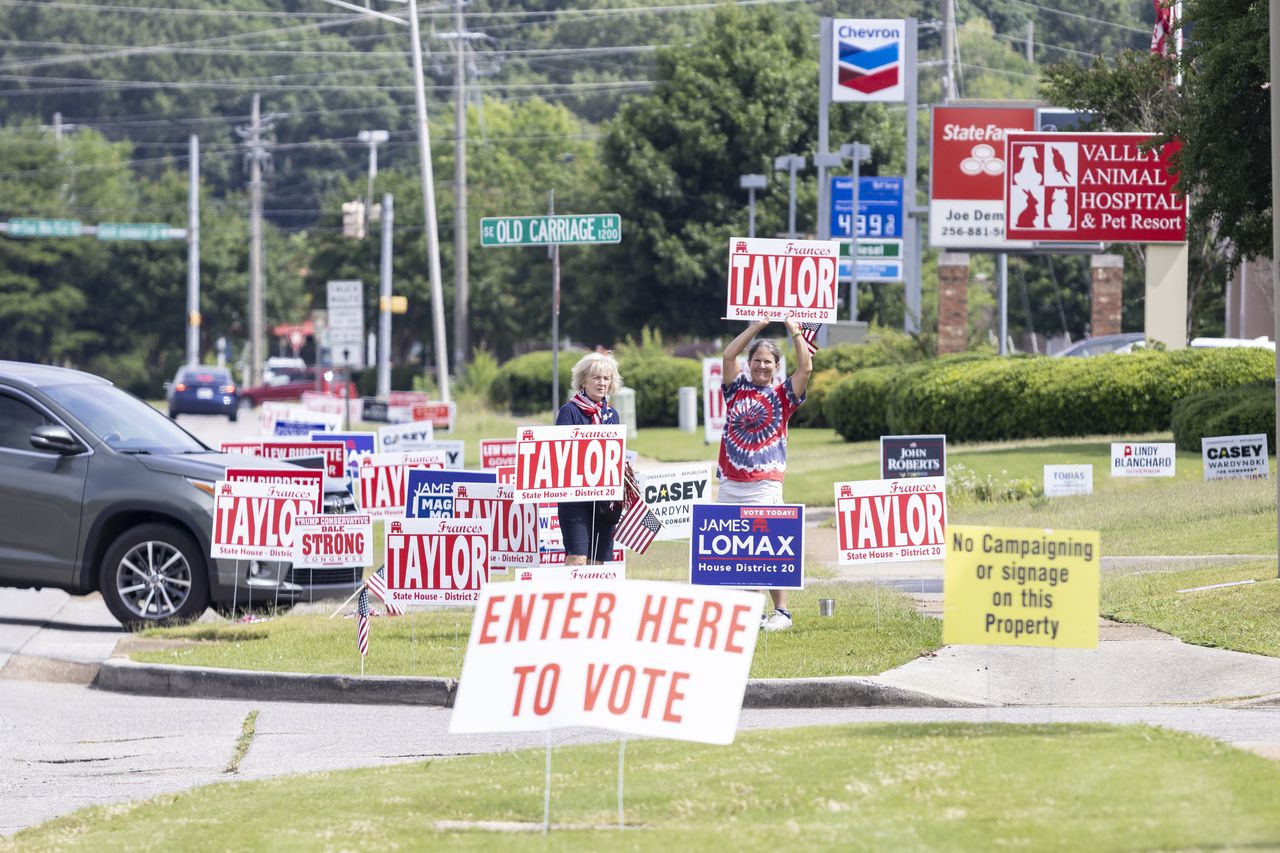Election 2022: Alabama voter registration increases as midterms near
More than 102,000 Alabama residents have registered to vote since June, according to data obtained by AL.com from the secretary of state’s office.
Voters registering for the first time and those renewing inactive registration statuses have averaged 20,449 each month since June. Comparatively, newly registered voters totaled 14,288 in January of 2022, and 13,609 in January of 2021.
It’s a marked difference in civic engagement compared to last year: At the end of 2020, Alabama had more than 3.5 million voters. At the end of 2021, the state had 3.16 million voters, with a loss of 349,016. From January to October 2022, though, the state increased 115,216 voters.
In a politically-charged election cycle, issues such as reproductive healthcare, education, redistricting and voting rights, gender-affirming care, and election security have been front and center for voter-focused organizations.
Kathy Jones, the president of the state chapter of the nonpartisan League of Women Voters, said the organization held two health care forums in September – one about the effect of COVID-19 on those in poverty and another on reproductive health. Jones said the meetings had a more robust attendance than usual.
“We broke all of our attendance records on those, which to me was just really interesting, because you know, that to me is almost like a barometer telling you there’s people out there paying attention,” Jones said.
The majority of Alabamians that have registered since June are women, making up 52% of the 102,247 new voters.
Jones, who has been involved with the organization since 2017, said she first got involved supporting high school voting drives. She said she thinks the Supreme Court’s Dobbs decision served as a catalyst for women, but that women are interested and invested in a lot of other issues, too.
“There are a whole lot of women engaged – people I’ve worked with, on other topics too, like rights restoration and trying to get automatic voter registration, basically trying to help people have an easier time of voting.”
Jones said she thinks Alabama’s recent low voter turnout – only 13% of registered voters cast a ballot in the most recent runoff election – could change if voters were better equipped to speak out about their needs.
“We see civic engagement and developing the community’s ability to advocate for their needs is going to be critical to starting to see better turnout and engagement in elections,” Jones said.
Organizers from different political parties held events recently across the state encouraging Alabamians to increase their civic engagement.
Alabama does not have party-specific registration, but state GOP Chairman John Wahl said he believes new voters want to advocate for conservative policies within the state.
Wahl said the Republican party “has seen a groundswell of support at both the state and local level.”
Read more: Alabama GOP chairman made the photo ID he used to vote.
Alabamians also are concerned about representation among elected officials and how recent congressional maps contribute to the electoral process.
Evan Milligan is the executive director of Alabama Forward, a coalition of more than 30 organizations dedicated to protecting voting rights and increasing civic engagement, particularly among young voters and people of color.
Milligan also is a plaintiff in the current U.S. Supreme Court case Milligan vs. Merrill. The case, which is still active and will see a decision in the spring, presents an argument that the state of Alabama’s congressional maps unfairly dilute the voices of Black voters, who make up 27% of the state’s population but are only the majority in one of the state’s seven congressional districts.
The state has argued that Black voters are too spread out to make a second majority-Black district without breaking up communities of interest and abandoning compact districts.
In a statement to the Associated Press, Attorney General Steve Marshall said the map is “based on race-neutral redistricting principles that were approved by a bipartisan group of legislators.”
Milligan said that fair redistricting is a foundational part of the electoral process because it decides how the system actually functions – though he clarified that the electoral system is a means to an end.
“The end is democracy. The end is having a representative voice,” Milligan said. “The end is really the idea on which this country was founded, that if we live here as citizens and not as subjects, then we should have access to the distribution of political power and money, particularly when we pay into the budgets of our governments, when we pay into these political institutions through our taxes, that we should have an equal shot in a fair shot at deciding how those resources are distributed.”
Midterm elections will be held Nov. 8 across the state.
Here’s how you can find your voting precinct and information on absentee ballots.
Sarah Swetlik is a gender and politics reporter at AL.com. Her staff position is supported through a partnership with Report for America. Contribute to support her work here.
